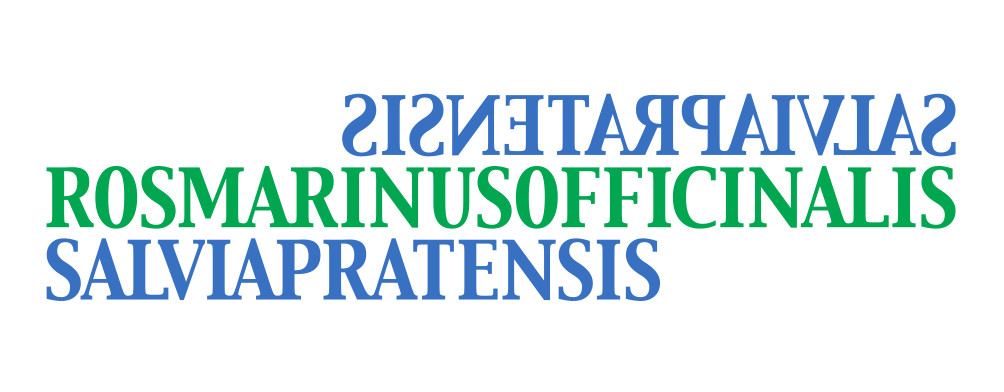Rosmarinus officinalis (rosemary)
Lamiaceae (mint family)
Small evergreen shrub, 50–200 cm in height, leaves acicular and narrow, rolled downward at the edges; flowers white to bluish in false whorls, shoots and leaf underside gray and downy. Dispersal by ants.
Grows wild in Mediterranean shrubland (Garigue). Popular spice, fragrance, medicinal and ornamental plant, main component of colognes.
Native to the Mediterranean, the natural area extends in the north to Provence, the southern edge of the Alps and Croatia. In Germany often cultivated in plant pots, hardy only in regions with mild winter weather.
Salvia pratensis (meadow sage)
Lamiaceae (mint family)
Perennial herbaceous half-rosette plant, 50–80 cm in height, leaves oblong-lanceolate, wrinkled, with a typical sage smell due to essential oils; flowers blue, rarely white or pink, in false whorls. Dispersal by ants, more rarely by other animals.
Grows in rough pastures, especially on non-fertilized or less fertilized, rather dry soil. Decline due to the intensification of grassland use. By now frequently planted on inner city traffic islands as an attractive wild shrub.
Indigenous to most of Germany, the natural area covers wide areas of Southern, Central and Eastern Europe, missing in Northern Europe. Naturalized neophyte in eastern North America.
